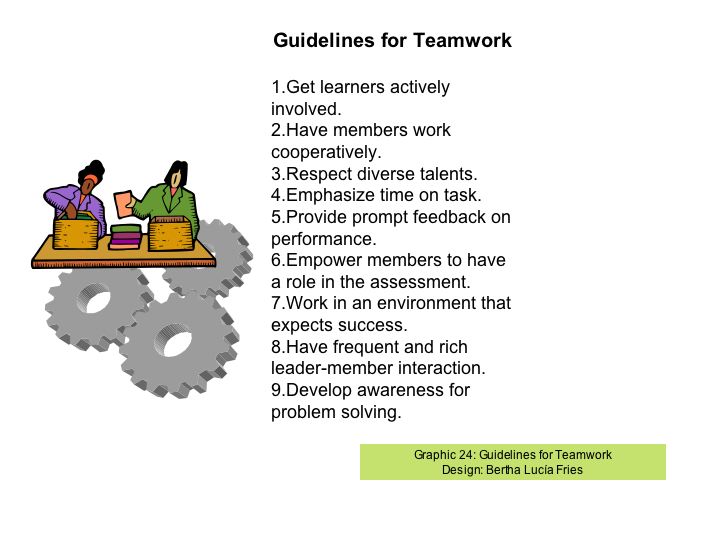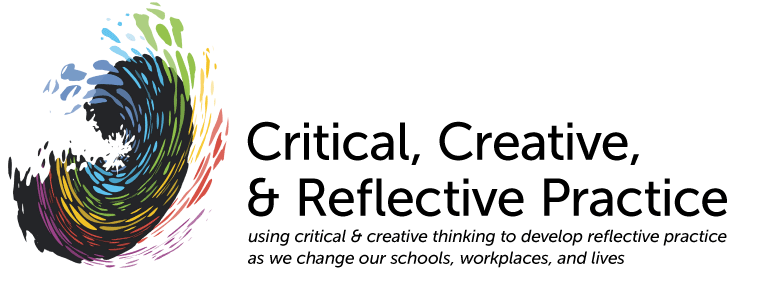- Get learners actively involved; don’t have them listen passively to the speaker.
- Have members work cooperatively by making success dependent on teamwork and helping each other.
- Respect diverse talents and ways of learning. Not everyone learns things following the same process. Foster learning by allowing and accounting for the individual preferences.
- Emphasize time on task. Enough time must be available to complete the task; but members must use the time productively and effectively. Members should know where they are going, how they will know when they get there and where they are now. There should be clear goals/expectations with measurable criteria to tell when the goal is reached. Both goals and criteria must be achievable with the resources available. Furthermore, members must be motivated to use their time productively.
- Provide prompt feedback on performance.
- Empower members to have a role in the assessment. Having ownership in the assessment aids in ownership of the learning.
- Work in an environment that expects success.
- Have frequent and rich leader-member interaction.
- Problem solving, group skills and other processing skills are not developed by observing others or by providing unstructured opportunity to do the skill on you own. Rather, to develop awareness, skills and confidence you need to break the skill into parts, provide an opportunity to try the skill and provide feedback about that effort. Then, target skills should be described, and we should be given feedback and practice until we master the skill.

(Original page by Mary Frangie)
